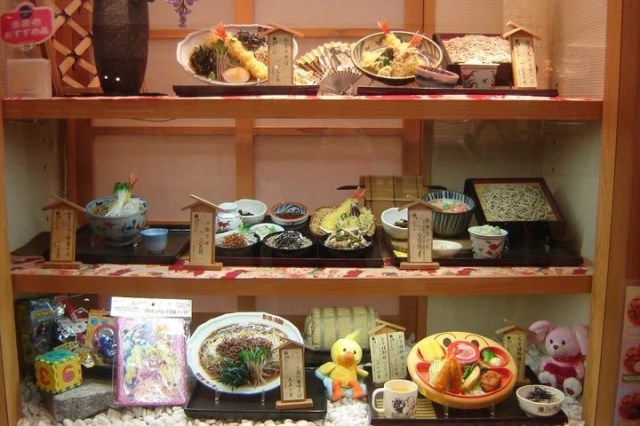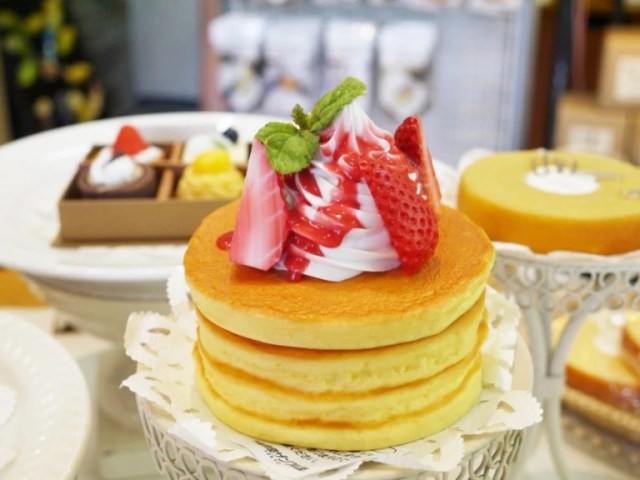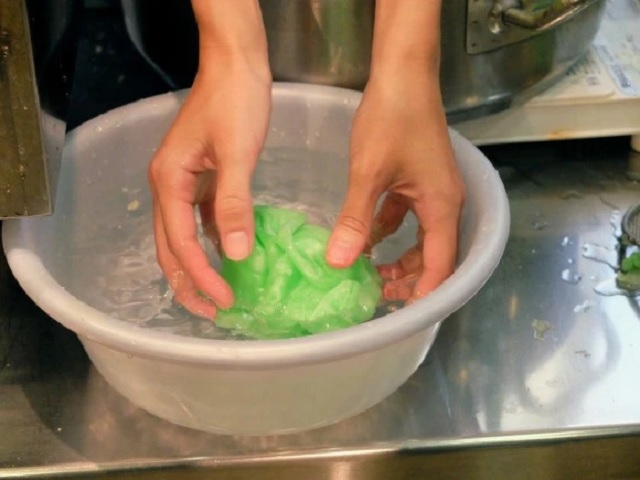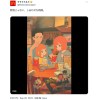
It sounded like stereotyping he’d heard before, but it turns out there was a twist ending.
A certain amount of culture clash is unavoidable within an international organization. No matter how committed everyone is to getting along and helping each other towards their common goal, coming from different backgrounds usually means having somewhat different values, which can lead to unintentional friction when someone says something that rubs someone else the wrong way.
That seemed to be the situation Japanese Twitter user @5ducks5 was in one day at work when he overheard part of an already-in-progress conversation two of his American coworkers were having with each other before the start of a meeting. “Japanese people really are great at making imitations,” one of them was saying. “They put so much effort into getting the imitation as close to the original as possible, and it ends up costing even more than the real thing.”
@5ducks5 could feel himself bristling at what sounded like the trotting out of the old stereotype that Japan is lacking in creativity, and only capable of copying things invented by people from other countries. Rather than get upset and angrily insert himself into the conversation, though, he forced himself to remain calm and see where the conversation was going. Sure enough, his American coworkers continued talking about Japan’s knack for making imitations, but ultimately no disrespect was meant at all, because, as @5ducks5 reports:
“It turns out they were talking about food samples.”
The “samples” here aren’t of the edible variety, but the plastic one. For decades, restaurants in Japan have drummed up business by placing plastic samples of their menu items in their windows. In a country where food is commonly expected to both taste and look delicious, the better-looking a restaurant’s samples, the more customers they’re likely to entice inside for a bite to eat, and so craftsmen have responded accordingly, putting forth the utmost effort to make their plastic models look as realistic as possible.
▼ And yes, there are dessert samples too.
The twist ending of @5ducks5’s workplace story has racked up over 28,000 likes, plus appreciative comments like:
“It seemed like disrespect, but it was actually just respect.”
“This shows how important it is to listen to the end of what people are saying before you react.”
“The sample-making companies in [Tokyo’s] Kappabashi neighborhood will make them to order even for non-restaurant customers.”
“They’re cool souvenirs of Japan for travelers.”
▼ There are also places in Tokyo where you can try your hand at making your own food models, like we did.
In contrast to the generations-long history of plastic food samples in Japan, they’ve never really been a thing at restaurants in the U.S. So while the conversation between @5ducks5’s American coworkers was one that was sparked by a cultural difference between the U.S. and Japan, it was about a discovery of something new to admire and enjoy, which is definitely the nicest part of two cultures intersecting.
Source: Twitter/@5ducks5 via Jin
Top image: Pakutaso (edited by SoraNews24)
Insert images © SoraNews24
● Want to hear about SoraNews24’s latest articles as soon as they’re published? Follow us on Facebook and Twitter!




 Behold the most realistic miso soup novelty smartphone stand known to man
Behold the most realistic miso soup novelty smartphone stand known to man Can one man blow 10,000 yen at Tokyo’s cheapest Italian restaurant? The human otter finds out
Can one man blow 10,000 yen at Tokyo’s cheapest Italian restaurant? The human otter finds out Tokyo street sweets: The must-snack treats of Nakano’s Refutei
Tokyo street sweets: The must-snack treats of Nakano’s Refutei McDonald’s ad in Japan causes controversy overseas
McDonald’s ad in Japan causes controversy overseas Japan Extreme Budget Travel! A trip from Tokyo to Izumo for just 30,000 yen [Part 2]
Japan Extreme Budget Travel! A trip from Tokyo to Izumo for just 30,000 yen [Part 2] The fish in rural Fukui that rivals Japan’s most auspicious sea bream
The fish in rural Fukui that rivals Japan’s most auspicious sea bream Ramen for 99 yen?!? Best value-for-money noodles found at unlikely chain in Japan
Ramen for 99 yen?!? Best value-for-money noodles found at unlikely chain in Japan Starbucks Japan adds new sakura Frappuccino and cherry blossom drinks to the menu
Starbucks Japan adds new sakura Frappuccino and cherry blossom drinks to the menu Japanese gamers anxious to get hands on South Korea’s latest hit: Destiny Child 【Pics, Videos】
Japanese gamers anxious to get hands on South Korea’s latest hit: Destiny Child 【Pics, Videos】 Naruto and Converse team up for new line of shinobi sneakers[Photos]
Naruto and Converse team up for new line of shinobi sneakers[Photos] Drift ice in Japan is a disappearing winter miracle you need to see now
Drift ice in Japan is a disappearing winter miracle you need to see now Can we be just like Shohei Ohtani on a budget with a Hello Kitty cap?
Can we be just like Shohei Ohtani on a budget with a Hello Kitty cap? Starbucks Japan releases first-ever Hinamatsuri Girls’ Day Frappuccino
Starbucks Japan releases first-ever Hinamatsuri Girls’ Day Frappuccino Japanese restaurant chain serves Dragon Ball donuts and Senzu Beans this spring
Japanese restaurant chain serves Dragon Ball donuts and Senzu Beans this spring Highest Starbucks in Japan set to open this spring in the Tokyo sky
Highest Starbucks in Japan set to open this spring in the Tokyo sky Tokyo Skytree turns pink for the cherry blossom season
Tokyo Skytree turns pink for the cherry blossom season Japan Extreme Budget Travel! A trip from Tokyo to Izumo for just 30,000 yen [Part 1]
Japan Extreme Budget Travel! A trip from Tokyo to Izumo for just 30,000 yen [Part 1] Yakuzen ramen restaurant in Tokyo is very different to a yakuza ramen restaurant
Yakuzen ramen restaurant in Tokyo is very different to a yakuza ramen restaurant Japan has only one airport named after a samurai, so let’s check out Kochi Ryoma【Photos】
Japan has only one airport named after a samurai, so let’s check out Kochi Ryoma【Photos】 Japanese drugstore sells onigiri at pre-stupid era prices, but how do they compare to 7-Eleven?
Japanese drugstore sells onigiri at pre-stupid era prices, but how do they compare to 7-Eleven? Adorable Totoro acorn key holders come with a special guest hidden inside[Photos]
Adorable Totoro acorn key holders come with a special guest hidden inside[Photos] Japan’s newest Shinkansen has no seats…or passengers [Video]
Japan’s newest Shinkansen has no seats…or passengers [Video] Starbucks Japan releases new sakura goods and drinkware for cherry blossom season 2026
Starbucks Japan releases new sakura goods and drinkware for cherry blossom season 2026 Foreigners accounting for over 80 percent of off-course skiers needing rescue in Japan’s Hokkaido
Foreigners accounting for over 80 percent of off-course skiers needing rescue in Japan’s Hokkaido Super-salty pizza sends six kids to the hospital in Japan, linguistics blamed
Super-salty pizza sends six kids to the hospital in Japan, linguistics blamed Starbucks Japan unveils new sakura Frappuccino for cherry blossom season 2026
Starbucks Japan unveils new sakura Frappuccino for cherry blossom season 2026 Foreign tourists in Japan will get free Shinkansen tickets to promote regional tourism
Foreign tourists in Japan will get free Shinkansen tickets to promote regional tourism The 10 most annoying things foreign tourists do on Japanese trains, according to locals
The 10 most annoying things foreign tourists do on Japanese trains, according to locals Take a trip to Japan’s Dododo Land, the most irritating place on Earth
Take a trip to Japan’s Dododo Land, the most irritating place on Earth Is China’s don’t-go-to-Japan warning affecting the lines at a popular Tokyo gyukatsu restaurant?
Is China’s don’t-go-to-Japan warning affecting the lines at a popular Tokyo gyukatsu restaurant? Survey asks foreign tourists what bothered them in Japan, more than half gave same answer
Survey asks foreign tourists what bothered them in Japan, more than half gave same answer Japan’s human washing machines will go on sale to general public, demos to be held in Tokyo
Japan’s human washing machines will go on sale to general public, demos to be held in Tokyo Starbucks Japan releases new drinkware and goods for Valentine’s Day
Starbucks Japan releases new drinkware and goods for Valentine’s Day We deeply regret going into this tunnel on our walk in the mountains of Japan
We deeply regret going into this tunnel on our walk in the mountains of Japan Studio Ghibli releases Kodama forest spirits from Princess Mononoke to light up your home
Studio Ghibli releases Kodama forest spirits from Princess Mononoke to light up your home Major Japanese hotel chain says reservations via overseas booking sites may not be valid
Major Japanese hotel chain says reservations via overseas booking sites may not be valid Put sesame oil in your coffee? Japanese maker says it’s the best way to start your day【Taste test】
Put sesame oil in your coffee? Japanese maker says it’s the best way to start your day【Taste test】 No more using real katana for tourism activities, Japan’s National Police Agency says
No more using real katana for tourism activities, Japan’s National Police Agency says